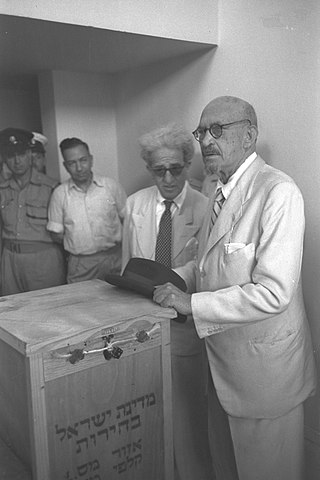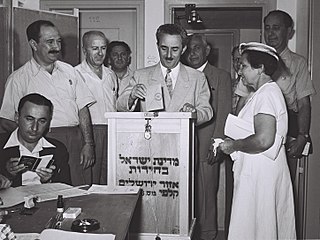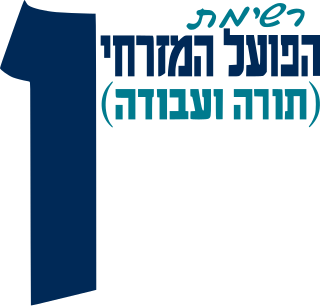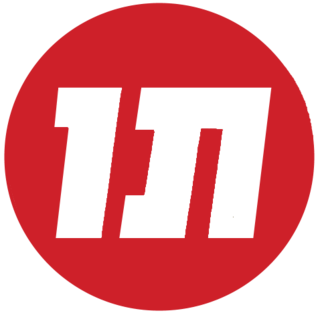Mapai was a democratic socialist political party in Israel, and was the dominant force in Israeli politics until its merger into the modern-day Israeli Labor Party in 1968. During Mapai's time in office, a wide range of progressive reforms were carried out, as characterised by the establishment of a welfare state, providing minimum income, security, and free access to housing subsidies and health and social services.

Herut was the major conservative nationalist political party in Israel from 1948 until its formal merger into Likud in 1988. It was an adherent of Revisionist Zionism.
The General Zionists were a centrist Zionist movement and a political party in Israel. The General Zionists supported the leadership of Chaim Weizmann and their views were largely colored by central European culture. The party was considered to have both conservative and liberal wings, and is one of the ancestors of the modern-day Likud.
The Progressive Party was a liberal political party in Israel.

Elections for the second Knesset were held in Israel on 30 July 1951. Voter turnout was 75.1%.

Elections for the third Knesset were held in Israel on 26 July 1955. Voter turnout was 82.8%.

Hapoel HaMizrachi was a political party and settlement movement in Israel. It was one of the predecessors of the National Religious Party and the Jewish Home.
Legislative elections were held in Israel on 3 November 1959 to elect the 120 members of the fourth Knesset. Mapai remained the dominant party, gaining seven seats. Following the elections, Mapai leader David Ben-Gurion formed ninth government on 17 December 1959. His coalition included the National Religious Party, Mapam, Ahdut HaAvoda, the Progressive Party and the three Israeli Arab parties, Progress and Development, Cooperation and Brotherhood and Agriculture and Development. The government had 16 ministers. Mapai's Kadish Luz became the Speaker of the Knesset.
Mizrachi was a political party in Israel, and is one of the ancestors of the modern-day National Religious Party–Religious Zionism.

The Israeli Liberal Party, also known as the Liberal Party in Israel was a political party in Israel and one of the forerunners of the modern-day Likud. The party was created by a 1961 merger between the centrist Progressive Party and the General Zionists, forming a right-leaning, middle class-based party. The Progressives soon seceded to form the Independent Liberals in 1964.
Elections for the sixth Knesset were held in Israel on 2 November 1965. Voter turnout was 85.9%.
The Alignment was the name of two political alliances in Israel, both of which ended their existence by merging into the Israeli Labor Party.

The ninth government of Israel was formed by David Ben-Gurion on 17 December 1959 following the November 1959 elections. Ben-Gurion largely kept the same coalition partners as during the previous government, and added the new Israeli Arab parties Progress and Development and Cooperation and Brotherhood.

Mapam was a left-wing political party in Israel. It is one of the ancestors of the modern-day Meretz party.

Ahdut HaAvoda was the name used by a series of political parties. Ahdut HaAvoda in its first incarnation was led by David Ben-Gurion. It was first established during the period of British Mandate and later became part of the Israeli political establishment. It was one of the forerunners of the modern-day Israeli Labor Party.
Municipal elections took place in Israel on 28 February 1989. They were originally meant to take place on 1 November 1988, but were delayed due to legislative elections taking place that day.
Municipal elections took place in Israel on 2 November 1965, alongside elections to the sixth Knesset.
Municipal elections took place in Israel on 3 November 1959, alongside elections to the fourth Knesset.
The 1955 Israeli Municipal elections took place on 26 July 1955 alongside elections to the third Knesset.

Municipal elections in Israel took place on 27 February 2024. In accordance with changes made in 2018, election day will be a paid day off work. All municipalities, local councils and regional councils will be up for election, as will their leaders. Top-two runoffs will be held in all localities where no leadership candidate won 40% or more of the vote in the first round.









